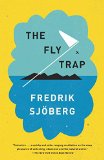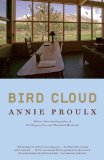Summary | Excerpt | Reviews | Read-Alikes | Genres & Themes | Author Bio

Klinkenborg brings a fresh view to the ordinary beauty of our daily lives in this year-long meditation on the deep joys of country life.
The dogs hear it in the distance before I do, and so do the horses, a dry dislocated thump, thunder from far away. One moment there's no wind, the air still and damp. The next moment the wind is turning corners where there aren't any, lifting and coiling the barnyard dust. Wind flails the leaves on the sugar maples, revealing their silver undersides. It scatters spent hickory flowers in drifts. The sky blackens, and I can almost hear rain begin. But then the wind drops and the front unravels over the western ridge, where the weather comes from. Blue sky intervenes. A clear night threatens once again, Venus hanging peaceful in the dusk.
From The Rural Life
A year-long meditation on the deep joys of country life.
In the pages of The New Yorker, Harper's, the New York Times, and his acclaimed books Making Hay and The Last Fine Time, Verlyn Klinkenborg has mastered a voice of singular lyricism and precision. His subject is the American landscape: not the landscape admired from a scenic overlook, but one taken in from a rusty chair propped against the worn siding of a screened-in porch, or from the window of a pickup driving down an empty highway into the teeth of an approaching storm. He has a keen appreciation of the peculiarly American tableau—a Memorial Day parade, or a boy riding a bike down the middle of a dusty street. Whether reporting from a small farm in upstate New York, a high pasture deep within the Rocky Mountains, or the bricked edge of a city shuddering in the wake of a "sudden Tuesday," Klinkenborg follows the momentum of the seasons in a language as simple, unsentimental, and exacting as life itself.
In the tradition of E. B. White and Henry David Thoreau, Verlyn Klinkenborg gives us in The Rural Life a fresh view of our greatest subject, the ordinary beauty of our daily lives.
 Alec Wilkinson
Klinkenborg has a singular affinity for the natural world and because he is such an accomplished writer...
Alec Wilkinson
Klinkenborg has a singular affinity for the natural world and because he is such an accomplished writer... Gregory Long
Klinkenborg has a poetic vision...takes his place among the best American writers about the natural world...
Gregory Long
Klinkenborg has a poetic vision...takes his place among the best American writers about the natural world... Jack Valenti
...no journalist...surpasses his liquid prose, which he offers with such ease and fluency...
Jack Valenti
...no journalist...surpasses his liquid prose, which he offers with such ease and fluency... Michael Korda
At once lyrical and down to earth...brilliantly takes the reader to the very heart of living in the country...
Michael Korda
At once lyrical and down to earth...brilliantly takes the reader to the very heart of living in the country... Tom Brokaw
...not only a rich and evocative pastoral pilgrimage, it is a national treasure...Klinkenborg is our modern Thoreau...
Tom Brokaw
...not only a rich and evocative pastoral pilgrimage, it is a national treasure...Klinkenborg is our modern Thoreau...
If you liked The Rural Life, try these:

by Fredrik Sjoberg
Published 2016
A mesmerizing memoir of extraordinary brilliance by an entomologist, The Fly Trap chronicles Fredrik Sjöberg's life collecting hoverflies on a remote island in Sweden

by Annie Proulx
Published 2011
Proulx's first work of nonfiction in more than twenty years, Bird Cloud is the story of designing and constructing her dream house. It is also an enthralling natural history and archaeology of the region, and a family history, going back to nineteenth-century Mississippi riverboat captains and Canadian settlers.